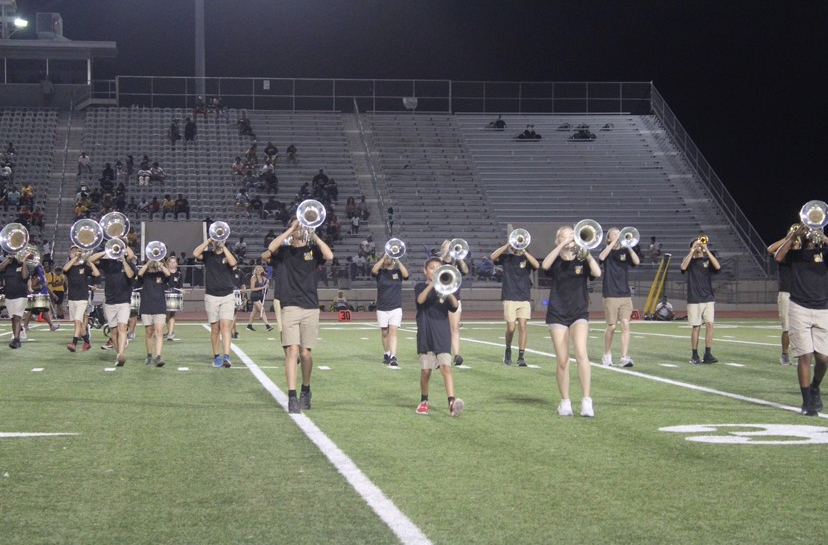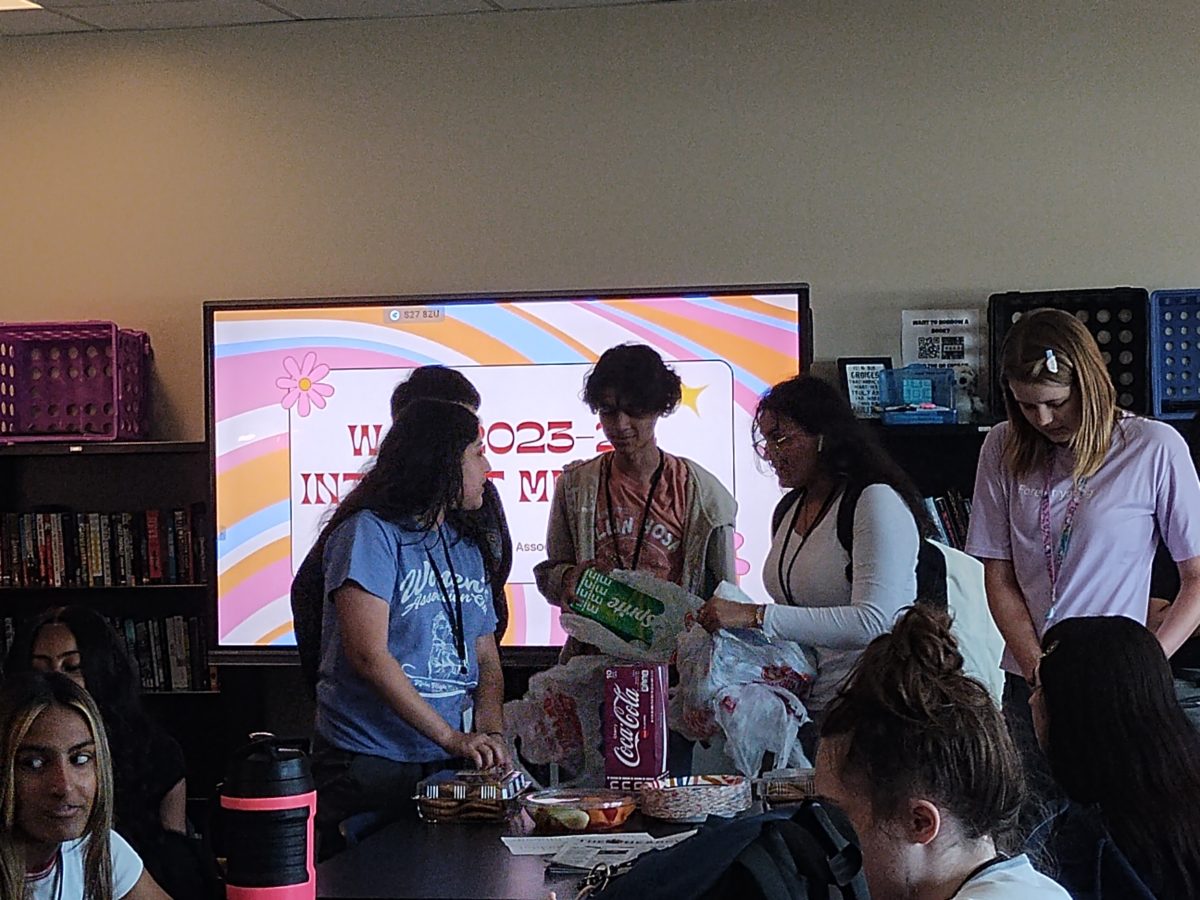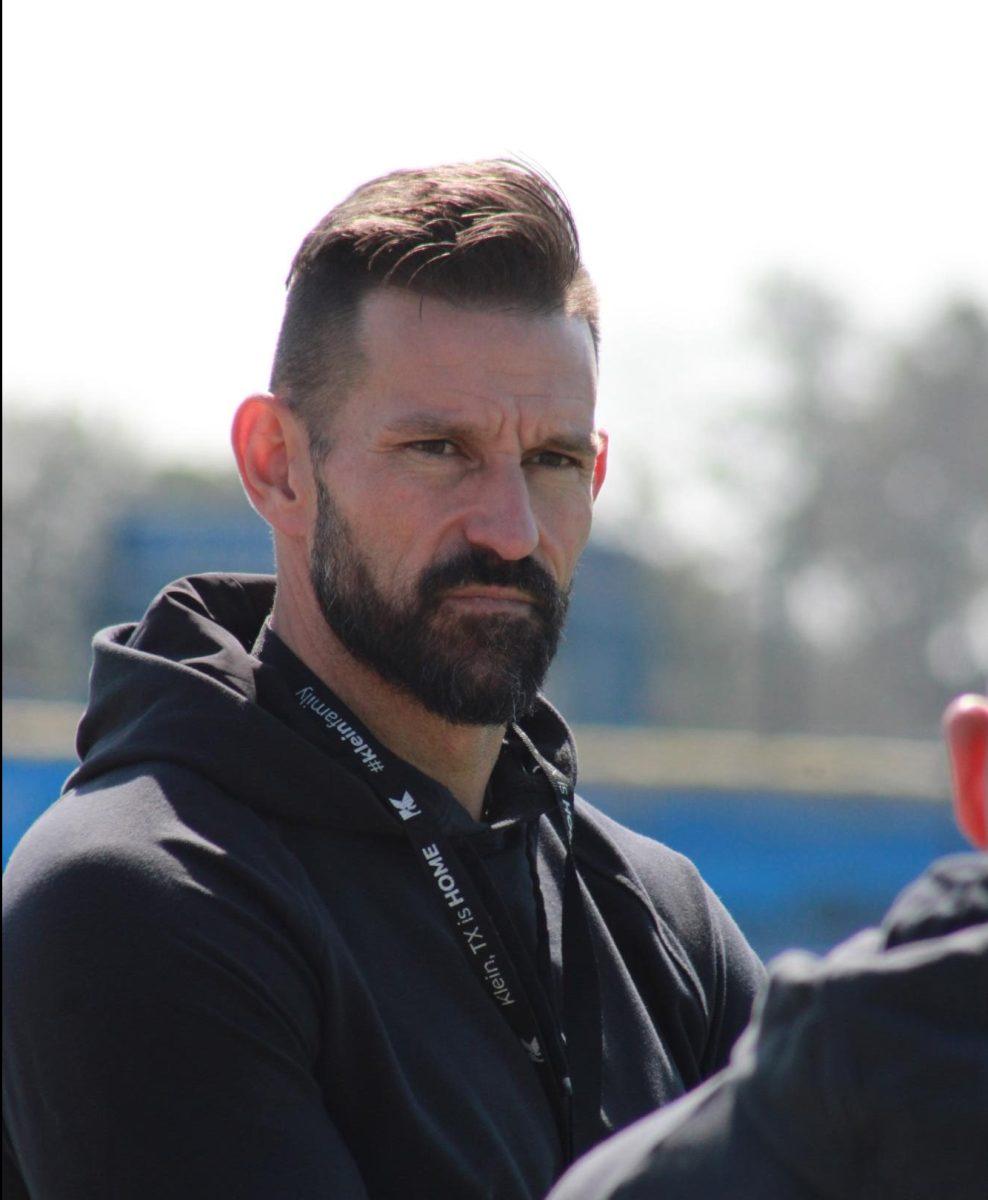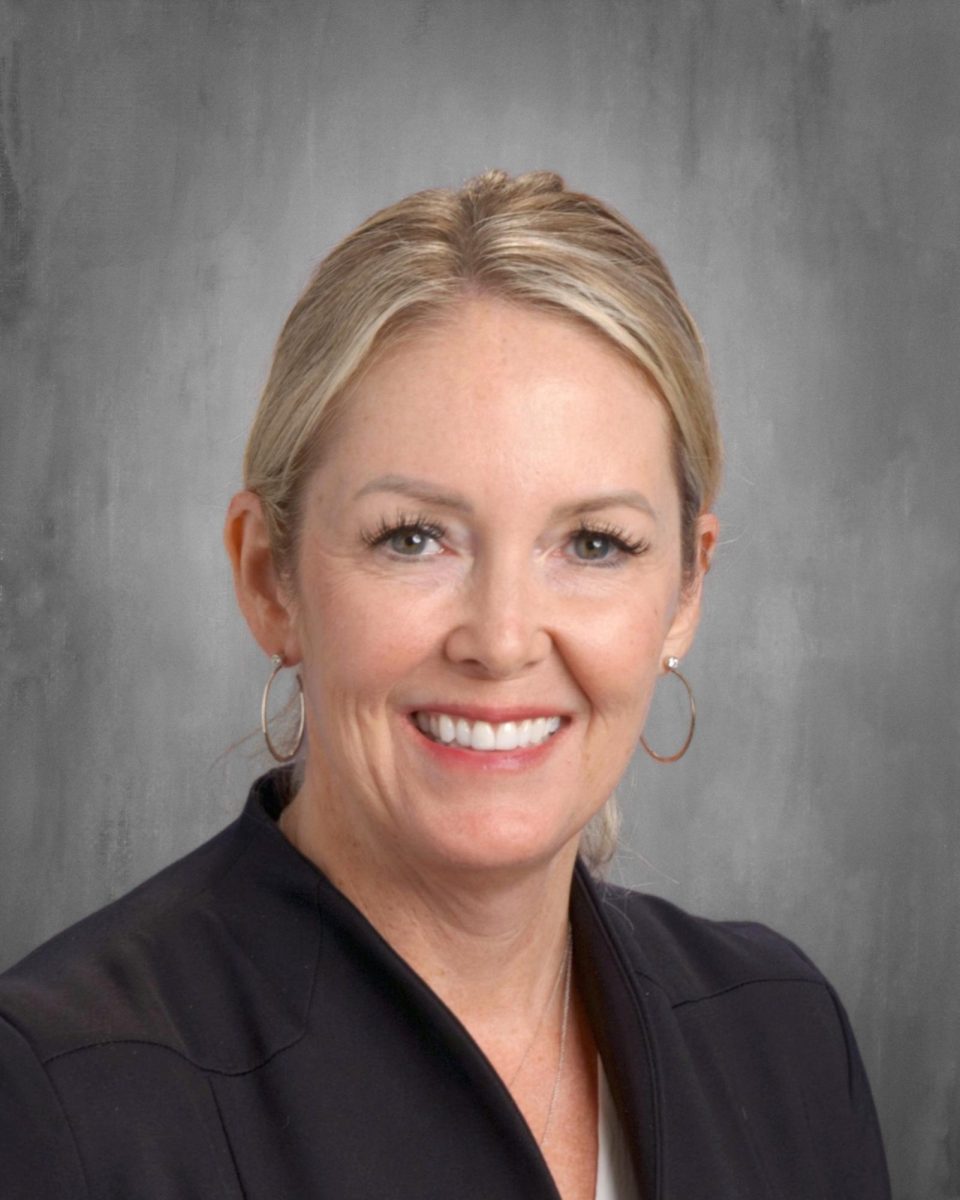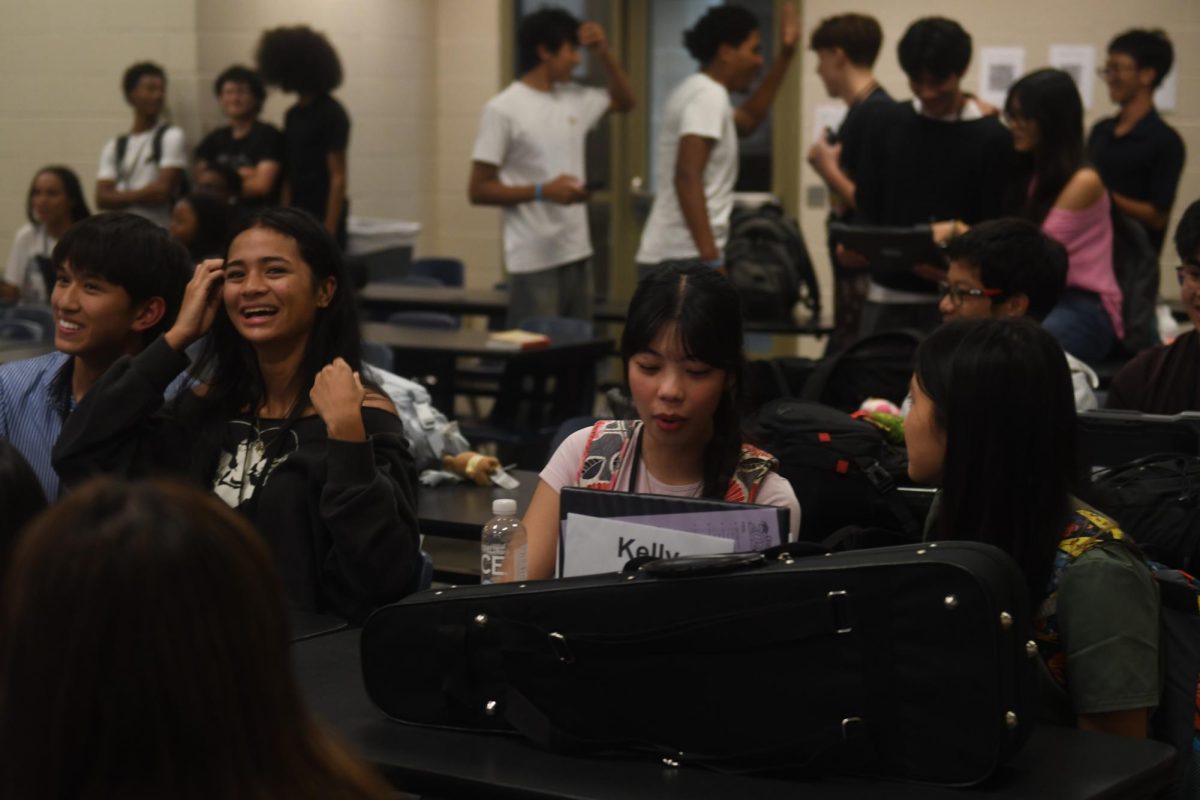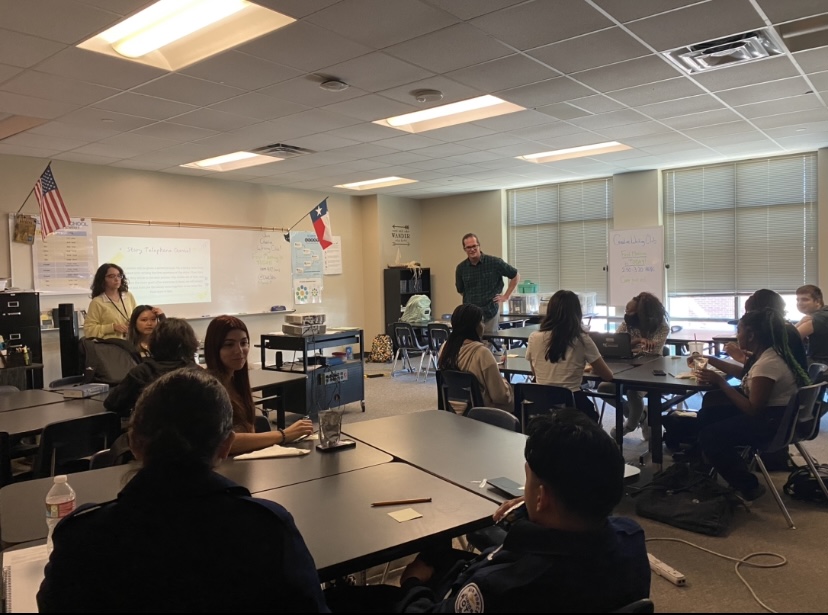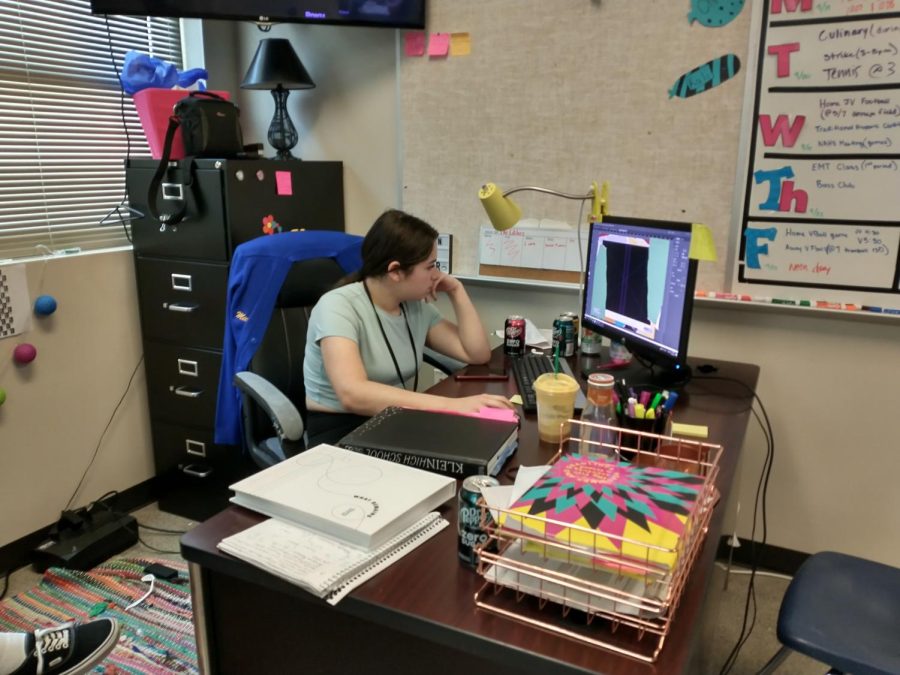With college application season beginning, many students are frantically realizing they don’t know nearly enough about college applications and what’s expected of them.
The college and career center is open to students for personalized help, and here College and Career Counselor Gayla Zamora gives insights on the college application process and what’s needed.
“The first step is deciding what career you want to pursue and what you’re going to major in,” Zamora said. “Then, what are some of the colleges that you would be interested in going to that have that major? This information comes with research from the college websites, search engines and career websites. Then you will decide which application portal you want to use.”
The two main application portals are Common Application, used mostly for out-of-state applications, and ApplyTexas, used mostly for in-state applications.
“These portals are where you can do one-stop-shop applications,” Zamora said. “You create an account, you decide on your major, you decide on a school and you do all the questions that they need. You can do as many applications as you want. But remember, they will have application fees.”
Application fees can be waived if students qualify for free or reduced lunch. The college and career center and student counselors have this status available on request.
“A misconception students often have is about financial aid,” Zamora said. “Students think, I’m not going to be able to afford college, but there’s lots of ways to get funding for college, like the FAFSA, the free federal financial aid. The financial aid application begins in December, and that tells you what you qualify for and grants and loans and scholarships. And then there’s lots of scholarships out there. There’s lots of ways to finance education, if you don’t have the money, but you do have to go through the process.”
Part of this process is writing application essays.
“Another important thing to remember is that essays are very important,” Zamora said. “especially now that SAT and an ACT are optional. Colleges really do look at your essay, so be sure to answer the prompt. Don’t use an essay you did in last year’s English three class, make sure you answer them. If you’re not answering the prompt then that doesn’t help them.”
Sample essay prompts are available on Common Application and ApplyTexas for student practice.
“How are you going to show them your life story in your essay?” Zamora said. “It needs to say something other than what’s on your resume. You’re already going to put all those things in your application, your essay needs to be something that makes you stand out that you haven’t already told them. Have you spent your whole life in theater? Of course, you can write about theater, but it needs to be more than the things that you’ve done. It needs to be how it impacted you.”
Depending on the specificity of the college, there may be more things a college asks for besides essays and a resume.
“With my major, I am required to submit auditions additionally to just applying,” senior Kylie Jones said. “So I am also working on finding monologues and songs that fit the criteria.”
Specialized schools may ask for more individualized information, but most schools will not. Colleges usually require students to provide basic information about themselves and their family, their GPA, standardized test scores, and extracurricular activities they were involved in as well as awards they received.
“But remember, college applications are a portfolio of you,” Zamora said. “So yes, it can be test scores if you want to do tests. It’s grades. It’s your essay. It’s your activities. It’s your volunteer work, it’s the story of you. There is not just one thing you should be concentrating on.”
When under holistic review, students should consider all of these things.
“The process can be a little overwhelming,” Jones said. “But that is why I have decided to start filling out Common App early and applying for financial aid before the deadlines.”
For senior Adah Chamberlain, college applications are much less stressful because of the preparation she did beforehand.
“One thing I did was visit all the colleges I was interested in during my junior year,” Chamberlain said. “Visiting campuses helped me get the overall vibe of the school and get answers to specific questions. If I was just now trying to decide which schools I even want to apply to, I would be struggling.”
If a student is looking at many schools, Zamora would advise applying to as many as are feasible.
“You’ve got to have plan A, B and C and D,” she said. “If you only apply to one college, then what happens if you don’t get into that college, or they don’t have your major, or they change your major, or you don’t get into that major? So it’s always good to have more options, more colleges, because you want to be the one to make the decision.”
College application season has already started as of Aug. 1, and will end around the end of January for regular decision. Early decision applications usually close in early November.
“Decide where you want to go,” Zamora said. “Narrow down that list. Be researching colleges and the major and what you want to study. Look at deadlines. You’ve got to get organized, but go ahead, get started.”
Categories:
Applying for the Future
Counselor Offers Advice for College Preparations
Elena Siekas signs to attend Concordia St. Paul at the 2023 athletic signing day.
2,554 Views
0
Donate to The Bearchat
$0
$500
Contributed
Our Goal
Your donation will support the student journalists of Klein High School. Your contribution will allow us to purchase equipment and cover our annual website hosting costs.
More to Discover




